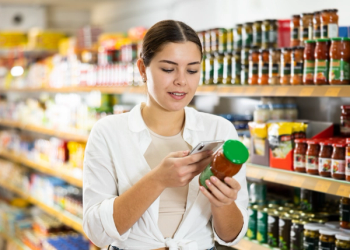
- Nutritional Outlook Vol. 19 No. 4
- Volume 19
- Issue 4
Chocolate Makers Focusing on Cocoa Flavanols
Chocolate makers are betting big on cocoa flavanols, but are consumers tuning in?
As if consumers didn’t have enough reasons to love chocolate, mounting research behind the health benefits of cocoa flavanols has many looking at the famously decadent category in an appreciative new light. As
We can already picture shoppers jumping with joy at the thought that chocolate may actually be healthy, but before they do, they should digest some key facts about flavanols-facts that will help them make smarter decisions when choosing a cocoa-based product.
Painstaking Production
Not all cocoa is created equal, and it takes a delicate production process to ensure high-flavanol content makes it into the finished product. Those invested in the cocoa flavanol category are hoping to bring to light the differences between a high-flavanol chocolate and your average chocolate.
High-flavanol content starts with careful selection of the right cocoa beans. “There are great differences in flavanol content between beans from different cocoa-growing countries, which depend on bean characteristics (genotype, or cocoa variety) and on external influences such as climate, soil, and pre- and post-harvest practices,” says Leen Allegaert, clinical researcher, Barry Callebaut (Zurich, Switzerland). Kerry Cavanaugh, brand director, Mars Chocolate, agrees that sourcing “fresh, high-quality cocoa beans” is one of the biggest challenges in creating high-flavanol cocoa.
But even that means little without a mild production process to ensure the flavanols arrive in the finished product intact.
“Cocoa flavanols are abundant in the fresh cocoa bean. Unfortunately, most traditional processing of cocoa-fermentation, roasting, and alkalization-destroys these flavanols,” says Cavanaugh. He adds that Mars works to protect and preserve cocoa flavanols through its Cocoapro production process, which was instrumental in creating Mars’s new Goodnessknows chocolate snack squares. The squares launched across the United States in the summer of 2015 and contain 100 mg of cocoa flavanols.
Barry Callebaut’s high-flavanol Happy Chocolate brand, which first hit U.S. shelves in 2013, is also carefully processed to maintain up to 80% of the cocoa flavanols that could be destroyed as a result of conventional chocolate-making, says Allegaert.
Building Awareness
Unfortunately, despite all the work it takes to achieve high-flavanol content, consumers may just assume all chocolate offers the same health benefits, regardless of the flavanols within.
“There has definitely been more buzz in the press during the past few years regarding the potential health benefits of dark chocolate, but it is often difficult for consumers to differentiate between chocolate with high and low percentages of cocoa solids, which are key indicators of flavanol content,” says Debra Music, cofounder and chief marketing officer, Theo Chocolate (Seattle).
While it can be difficult to succinctly unpack the science behind flavanols, Theo is confident “that as consumer knowledge grows, so will demand for cocoa flavanols,” Music explains. Theo launched Quinoa Coconut 75% Dark Super Chocolate bars in 2015, which include 150 mg of flavanols per serving.
Another marketing strategy may be to tap into more familiar messaging, rather than waiting for flavanol awareness to grow.
“Often it is easier to talk about things that consumers are familiar with,” says Barry Callebaut’s Allegaert. “Cocoa flavanols, the typical polyphenols in chocolate, are not well-known by consumers. Hence, it’s easier to talk about ‘bursting with antioxidants.’”
Whatever the strategy, it’s clear from the number of high-flavanol cocoa products coming to market that we’re beginning to build consumer and scientific understanding of all that cocoa flavanols bring to the table.
Also read:
Articles in this issue
over 9 years ago
Editorial: Calling All Sports Nutrition Customersover 9 years ago
Astaxanthin: New Health Promises on the Horizon?over 9 years ago
Children and Dietary Supplements: Little Kids, Big Marketover 9 years ago
Dietary Supplement Production Challenges, Equipment Solutionsover 9 years ago
A 2016 Update: Promising New Science on Probioticsover 9 years ago
Weight-Management Supplement Strategies for a Skeptical Publicover 9 years ago
Stevia versus Monk Fruit: How Do They Compare in Formulation?over 9 years ago
Stevia and Monk Fruit: What Makes a Natural Sweetener Natural?Newsletter
From ingredient science to consumer trends, get the intel you need to stay competitive in the nutrition space—subscribe now to Nutritional Outlook.





